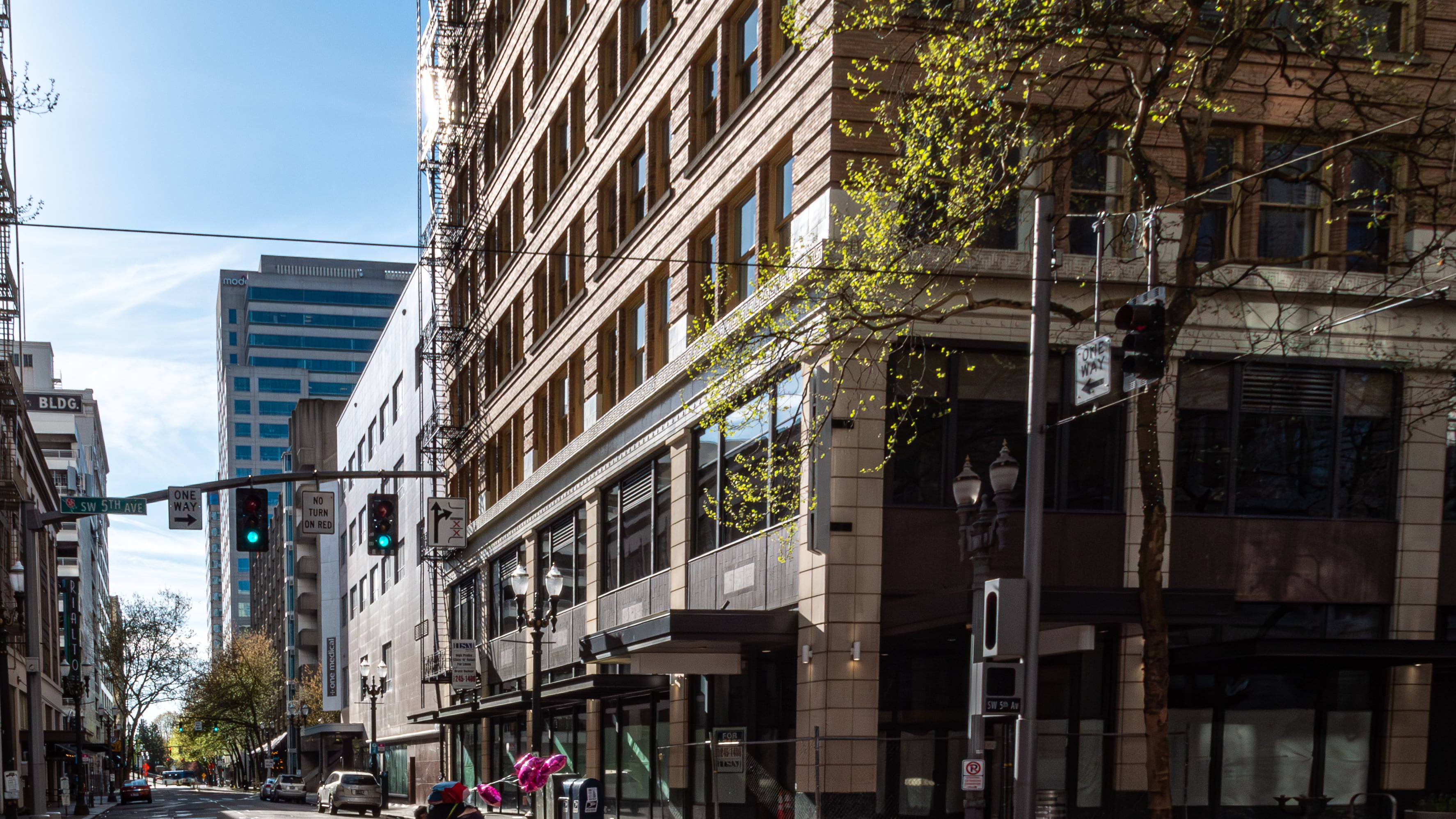PORTLANDERS STILL LOVE TO WORK FROM HOME: By most measures, downtown Portland has been slower to recover from COVID-19 than many other metro areas. Cellphone data analyzed by the University of Toronto (criticized by some for defining Portland’s downtown too narrowly) showed that Stumptown was a laggard. Last week, the U.S. Census Bureau released data showing that Multnomah County lost 8,294 residents in 2022, cutting the population to 795,083. Though small, any loss is a big deal in a town that once grew faster than the line at Salt & Straw on a Sunday in August. Now, there is more census data that might explain why downtown still feels empty. The Portland-Vancouver-Hillsboro metro area (that’s a census designation) ranked 10th in terms of people working from home in 2022, with 23.3% favoring a laptop and pajamas in the den over a commute to the old office, according to Bloomberg News, which reported on the data this week. That figure is down from 27.5% in 2021, mirroring a national trend of going back to the office, albeit slowly. And Portland is still far above the U.S. average: 15.2% in 2022, down from 17.9% in 2021. The top work-from-home locale in both 2021 and 2022? Boulder, Colo., at 36.3% and 32%, respectively. But working from home was a thing in Boulder before the pandemic. It topped the list at 13.7% in 2019, when Portland didn’t even make the top 25.
MEASURE 110 OVERHAUL SEEKS TO EXPAND COALITION: A group of longtime politicos filed two ballot initiatives earlier this week that would dramatically remake Measure 110 by recriminalizing possession of hard drugs and shifting oversight of addiction treatment funds away from the Oregon Health Authority. The campaign will be handsomely funded: While no contributions have yet been reported to the state by The Coalition to Fix Ballot Measure 110 (its political action committee awaits processing by the state), the group released a list Sept. 18 of its top donors. They include Columbia Sportswear CEO Tim Boyle; the Goodman family, which controls most downtown parking garages; real estate mogul Jordan Schnitzer; and Ed Maletis, chairman of the Portland Bottling Company. In the days leading up to the ballot initiatives being filed, an unusual request surfaced on social media. Longtime political affairs operative Vikki Payne placed a request on Nextdoor, stating that the backers of the overhaul were looking for a “female person of color to round out their public facing backers/ballot petitioners listed on a ballot measure effort to overturn aspects of Measure 110.” Payne instructed anyone who “fits the identity criteria” to reach out by email. Payne tells WW she posted the message after communicating with someone within the coalition. The ballot initiative’s backers did not respond to a request for comment.
JURY CONVICTS INSURRECTIONIST WHO RAN FOR OREGON GOVERNOR: On Sept. 18, a federal jury convicted Reed Christensen, a 65-year-old Hillsboro man who attacked police on the steps of the nation’s Capitol during the Jan. 6, 2021, insurrection. According to the complaint filed in Washington, D.C., federal court, Christensen breached a barrier of bike racks that had been hastily set up to keep the crowds off of the Lower West Terrace. After he was tear-gassed, he struck an officer with his fists, which was caught on video both by body-worn police cameras and journalists. Christensen was reported to police by someone who knew him, and arrested by law enforcement a few months later. He leveraged the incident into a short-lived political career here in Oregon, where he ran for governor in 2022. “When I came back from the Jan. 6 rally, I felt like I had participated in the Boston Tea Party 2.0. If anything, I have more of a right to run as governor because I stood up for the Constitution,” he told WW last year. The retired Intel electrical engineer received a warm reception at debates, but won less than 1% of the vote in the Republican primary. On Monday, the jury found him guilty on eight counts of unauthorized entry and assault. He now awaits sentencing.
MENASHES DOUBLE DOWN ON DOWNTOWN: In a rare, large transaction for downtown Portland these days, Menashe Properties said it bought the 183,735-square-foot American Bank Building for $13.6 million, betting that enough people will return to the office post-COVID to make office investments pay off again. “Our purchase of the iconic American Bank Building represents a strategic, synergistic investment that not only underscores our commitment to downtown Portland, but also our confidence in the resurgence of the office space sector,” Lauren Menashe, a principal at family-owned Menashe Properties, said in a press release. Menashe says it got a deal, closing “the lowest dollar-per-square-foot sale in downtown Portland in recent history.” At $13.6 million, the price works out to about $75 a square foot. The last time the building changed hands was in 2014, at $45.1 million, or $245 a square foot. Including the American Bank Building, Menashe Properties says it owns more than 800,000 square feet of commercial real estate in downtown Portland. Included in those holdings is Washington Center, the vacant, boarded-up hulk at Southwest 4th Avenue and Washington Street that for many months functioned as an open-air market for the sale and use of fentanyl.

